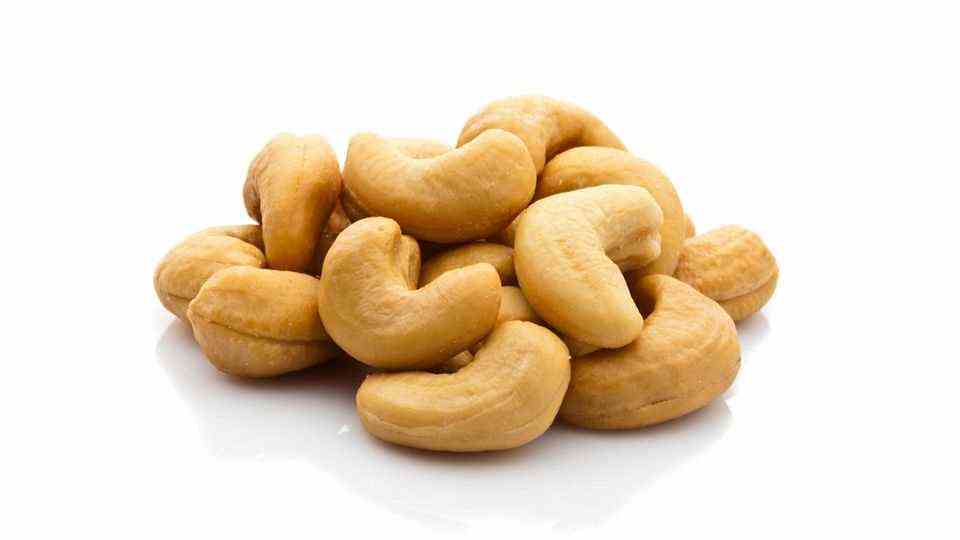Two nuts a day are harmless
Naturally Radioactive: What You Need to Know About Brazil Nuts
Due to their crescent shape, Brazil nuts stand out in every nut mix
© natalie_board / Getty Images
Brazil nuts are full of valuable ingredients and taste good. But did you also know that nuts are naturally radioactive? This does not mean that they are automatically unhealthy – but it is important to pay attention to the amount consumed.
Brazil nuts are often an integral part of nut mixes and are particularly tasty. Its ingredients are also impressive: the crescent-shaped nuts contain numerous vitamins, minerals and unsaturated fatty acids. Vegetarians and vegans appreciate them mainly because of the vegetable protein they contain. They are also particularly rich in selenium, a trace element that is important for cell renewal, the immune system and the fertility of men, among other things. A single nut already covers more selenium than the daily requirement.
Radium in Brazil nuts
Nevertheless, the Bavarian Consumer Center recommends consuming Brazil nuts only in small portions, as can be seen from a communication. The reason: the nuts are naturally radioactive. “They can have around 1000 times higher radium content than the average of all foods contaminated with radium in Germany,” explains Susanne Moritz, nutrition expert at the Bavarian Consumer Center. Radium is a radioactive element.
People who have eaten Brazil nuts from time to time in the past don’t have to worry about it right away. That Federal Office for Radiation Protection (BfS) did the math: people who eat two Brazil nuts a day increase their intake of natural radionuclides by around half compared to a conventional diet. “With radiation exposure at this level, nobody has to expect negative health consequences,” says the BfS website.
According to the World Health Organization WHO, Brazil nuts are consumed in significantly smaller quantities in Germany anyway: an average of 0.1 grams per person per day. A lot that, according to the BfS, is “harmless to health”. At the same time, however, the BfS points out that anyone who regularly eats Brazil nuts to improve their selenium status can also use dietary supplements without additional radiation exposure.
How does the radioactivity get into the nut?
Basically, all foods contain natural radionuclides – some more, some less. Brazil nuts occupy a “special position” among foods because of their high radium content, writes the BfS. “With essential elements absorbed from the soil, radioactive substances also get into the plants and thus into the food chain.”
As a result of the Chernobyl reactor disaster in 1986, certain types of fungus and wild animals are still contaminated with cesium-137 in some areas of Germany. However, this pollution should not be confused with naturally occurring radioactivity. Especially southern Bavaria and the Bavarian Forest were affected by the so-called Chernobyl fallout. Radiation protection experts therefore adviseTo consume game and wild mushrooms from contaminated areas only in the usual quantities in order to keep the radiation exposure low.
According to the BfS, however, the burdens will gradually decrease in the coming years. Radiocesium disintegrates over time and migrates to deeper layers of the forest floor.
Source: Consumer advice center Bavaria / Federal Office for Radiation Protection


